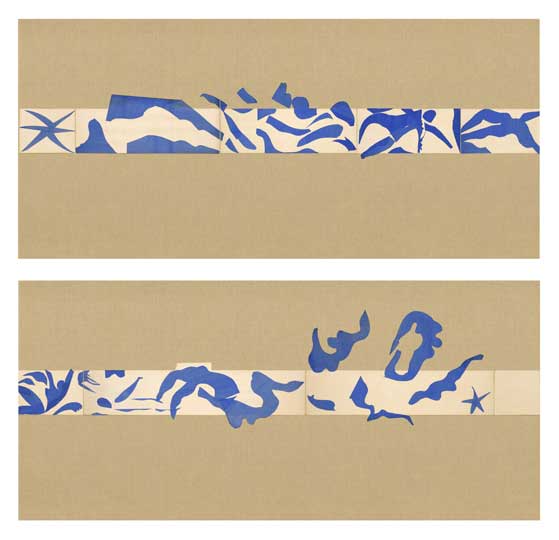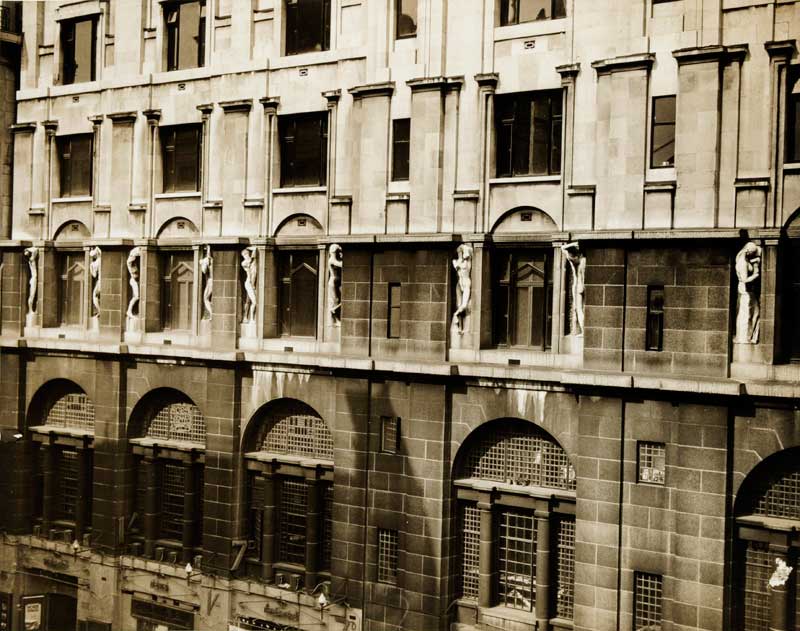A round-up of the week’s reviews
The Swimming Pool (late summer, 1952), Henri Matisse © 2014 Succession H. Matisse / Artists Rights Society (ARS), New York

‘Cutting directly into vivid colour’: Matisse arrives in New York (Louise Nicholson)
The Matisse cut-outs show has arrived at New York’s Museum of Modern Art (MoMA), trail-blazed for four months by mouthwatering reports of its runaway success at London’s Tate Modern. Expectations are high, even in this city of extraordinary art shows in extraordinary museums…But it is MoMA’s own The Swimming Pool room that transforms the show from its Tate Modern incarnation. As MoMA director Glenn Lowry says: ‘This is Matisse’s only site-specific cut-out’, which post-conservation formed the original kernel of the whole exhibition.
The British Library goes Gothic (Danielle Thom)
This smart, engaging show looks at the development of ‘Gothic’ culture through its literature, architecture and other cultural manifestations. Tracing a line from Walpole’s 1764 sensational novel The Castle of Otranto, to present-day Goth kids in lashings of black eyeliner, the show probes beneath Gothic’s darkly glamorous surface to consider the movement as a mode of cultural subversion, and a liberation of both body and mind.
Sculptures for the British Medical Association Building, London (1907), Jacob Epstein © Tate Enterprises. Courtesy Leeds Museums & Galleries (Henry Moore Institute Archive)

Sculptors’ Papers at the Whitechapel Gallery (Lowenna Waters)
Drawing on the Henry Moore Institute’s rich archive of sculptors’ papers in Leeds, the exhibition illuminates the stories behind some of London’s most radical public sculptures, commissioned from the early 20th century onwards. Focusing on the journey that works take from conception to installation, the exhibition offers an insight into the hard graft involved in gaining consent for public sculpture, and the often-polarised reactions it receives.
Nevinson’s prints at Osborne Samuel, London (Maggie Gray)
Whereas Paul Nash or Stanley Spencer (Nevinson’s pre-war contemporaries at the Slade) seemed to find their artistic direction during the First World War, and went on to pursue their distinctive brands of British modernism for years to come, Nevinson’s style scattered…Osborne Samuel’s impressively comprehensive exhibition provides a fascinating insight into where he went next. He roved, is the simple answer: to Paris, New York and London, and all over the place stylistically. I don’t mean that pejoratively.
Frieze Sculpture Park 2014: Ursula von Rydingsvard. Galerie Lelong. Photograph by Linda Nylind. Courtesy of Linda Nylind / Frieze

Outside the tents: Frieze Sculpture Park (Emma Crichton-Miller)
As art becomes London’s primary focus this week, whether in large white tents, crowded auction rooms or packed galleries, one source of respite from the surrounding frenzy is the Frieze Sculpture Park.
Beyond Limits: Sotheby’s sculpture park at Chatsworth (Emma Crichton-Miller)
The proliferation of sculpture parks around the country – from Jupiter Artland outside Edinburgh to Barbara Hepworth’s garden in St Ives – has confirmed that it is not just collectors who enjoy the encounter with sculpture in the landscape. The public seems just as keen on historic gardens that offer the additional lure of contemporary art. One of the happiest marriages is at Chatsworth, where, since 2006, the Duke of Devonshire has hosted every year a display by Sotheby’s of large-scale sculpture, entitled ‘Beyond Limits’.






